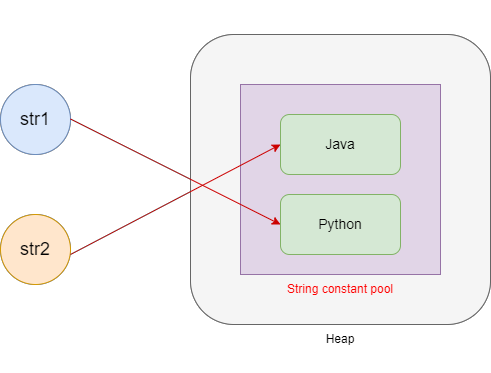What Is Immutable Strings and Just How It Functions
In the world of programs, understanding the idea of unalterable strings is vital for developing secure and robust applications. Unalterable strings refer to strings that can not be changed after they are produced, making sure information stability and predictability within the code.
The Essentials of Immutable Strings
Unalterable strings, as a fundamental idea in shows, are character series that can not be transformed when they are produced. This implies that as soon as a string is assigned a worth, that value can not be altered. In languages like Python and Java, strings are immutable things, leading to numerous ramifications in terms of memory monitoring and information stability.
Among the vital advantages of unalterable strings is that they supply a complacency in information manipulation. Since the material of an unalterable string can not be modified, it ensures that the initial data continues to be intact, reducing the risk of unexpected modifications during program execution (Why are strings immutable in Java?). This residential or commercial property likewise simplifies debugging processes, as programmers can rely on that as soon as a string is specified, its value will certainly not be unintentionally modified
When a new string is developed based on an existing one, instead than changing the original string, the new worth is stored separately. Generally, comprehending the essentials of immutable strings is critical for understanding programs principles and maximizing code performance.
Advantages of Unalterable Strings
Building upon the safety and security and performance benefits of unalterable strings, their benefits include enhancing code reliability and streamlining concurrent shows tasks. By being immutable, strings can not be changed after production, which removes the risk of unplanned adjustments in the data they store. This intrinsic immutability ensures that when a string is produced, its worth continues to be continuous throughout the program's implementation, reducing the possibilities of insects triggered by unanticipated alterations.
Additionally, immutable strings add to code integrity by making it easier to reason about the state of a program. Given that strings can not be altered, designers can rely on that a string will constantly hold the very same worth, simplifying debugging and upkeep initiatives. This predictability leads to extra dependable and secure codebases.

Application in Programming Languages
Within different shows languages, the consolidation of immutable strings is a basic element that influences just how data is handled and manipulated within code frameworks. The application of unalterable strings differs across different shows languages, with each language offering its very own devices to sustain this principle.

On the other hand, languages like C and C++ do not have integrated support for immutable strings. Developers in these languages should by hand execute immutability by applying policies within their code to avoid straight adjustments to string things.
Best Practices for Functioning With Immutable Strings
When taking care of unalterable strings in programming languages like Java and Python, adhering to ideal methods guarantees efficient and secure data control. One of the crucial best methods is to make use of StringBuilder or StringBuffer instead of directly controling strings, specifically when managing comprehensive concatenation operations. These classes provide mutable options for string adjustment, helping to avoid unneeded memory allowances and improving efficiency.
Furthermore, when working with sensitive information such as passwords or API secrets, it is crucial to avoid saving them as ordinary text in unalterable strings. Using safe and secure storage mechanisms like char varieties or specialized collections for handling delicate details aids reduce security threats connected with unalterable strings.
Real-world Applications and Instances
Discovering useful implementations of unalterable strings in various industries discloses their substantial influence on data stability and system dependability. In this contact form the health care industry, unalterable strings play a vital function in ensuring the protection and privacy of person information. By avoiding unapproved modifications to sensitive information such as medical documents and prescriptions, immutable strings assist maintain compliance with stringent personal privacy laws like HIPAA.
Banks additionally take advantage of the unalterable nature of strings to enhance the security of customer data and purchase records. Immutable strings help prevent fraudulence and unauthorized modifications to monetary info, providing a robust protection against cyber risks and making certain the count on and self-confidence of clients.

Verdict
Finest methods for working with immutable strings include staying clear of direct alterations and using techniques that return new string items. Real-world applications of unalterable strings consist of data file encryption, caching, and string control jobs.
Immutable strings refer to strings that can not be altered after they are developed, making sure data integrity and predictability within the code. When a brand-new string is developed based on an existing one, instead than customizing the initial string, the new value is saved separately.In languages like Java and Python, strings are immutable by default, indicating that when a string things is produced, its worth can not be changed - Why are strings immutable in Java?. Ideal techniques for working with immutable strings consist of preventing direct adjustments and making use of methods that return brand-new string things. Real-world applications of immutable strings include data encryption, caching, and string control jobs